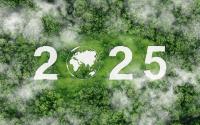Common Dreams / Published on Sunday, October 29, 2006 by the Toronto Star (Canada)
From the beginning of time until the mid-1980s, improvements in lifestyles around the globe were sustainable in the sense that humanity's demands on the Earth did not exceed the capacity of the planet to renew itself.
Since then, however, we have been overtaxing the planet.
According to the World Wildlife Fund's 2006 Living Planet Report, people are now turning resources into waste at a pace 25 per cent faster than the Earth can turn waste back into resources.
Scientists gauge the extent to which we are trampling the Earth's delicate ecosystems with a yardstick they call humanity's "ecological footprint."
Not surprisingly, rich countries have considerably larger ecological footprints than poorer ones, with Canada's per capita footprint ranking fourth largest overall.
And given the richer countries' desire for continuously rising standards of living, and the poorer countries' determination to catch up, the planet will be transformed into a global garbage dump unless everyone soon starts getting serious about sustainable development.
Underscoring the threat posed by our growing footprint, the World Wildlife Fund says that by 2050 we would need two Earths to support us if we continue using up ecological resources at the rate we are going.
While critics may dismiss the report's findings as grossly exaggerated, the study should, in fact, serve as a wake-up call for anyone interested in the long-term sustainability of the Earth.
In terms of our ability to make do with the only planet we have to live on, the good news from the WWF is also the bad news.
Both our biggest ecological problem — and its most feasible solution — are evident in the fact that nearly half of the world's ecological footprint is attributable to just one source, which is carbon dioxide emissions from burning fossil fuels.
The good news is that we already have technologies that would allow us to make significant cuts in the carbon dioxide emissions that cause global warming. Just last week, for example, the Ontario Power Authority released a study that found clean but costly wind power could make up for the 20 per cent of Ontario's electricity generating mix that now comes from dirty, coal-fired plants.
The bad news, as reflected in the federal government's recently released Clean Air Act, is that too many countries are still unwilling to incur the costs required to make the deep cuts in greenhouse gas emissions needed now to reduce the huge ecological footprint.
In sharp contrast to the undertakings Canada made under the Kyoto Accord to cut current emissions of greenhouse gases by about 30 per cent over the next two to six years, the Conservatives' Clean Air Act proposes to cut them by 50 per cent over the next 44 years. That is an inadequate response to atmospheric degradation, the most pressing ecological problem.
But the world's responses to the size of the human footprint on the Earth's lands and its waters are also bad.
In Canada, for example, development of the western oil sands has been allowed to proceed at a pace that is already threatening the region's water supplies.
And the Great Lakes protection treaties need to be rewritten to take account of a host of new environmental threats that are not being addressed.
Everybody knows that mankind's growing footprint is crowding out other species. The WWF report says the total global population of mammals, reptiles, fish and birds has dropped by nearly a third since 1970.
But what we refuse to recognize is that if we fail to shrink our ecological footprint, it won't be long before we start crowding out each other, too.






